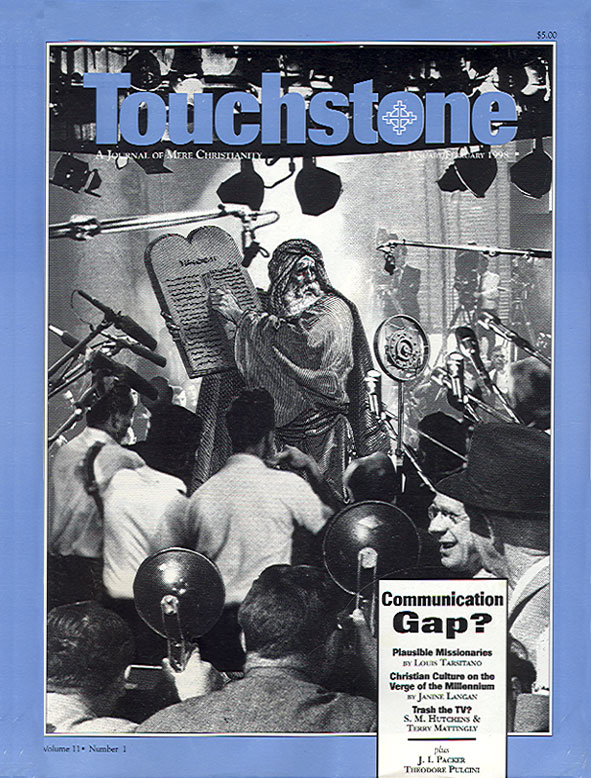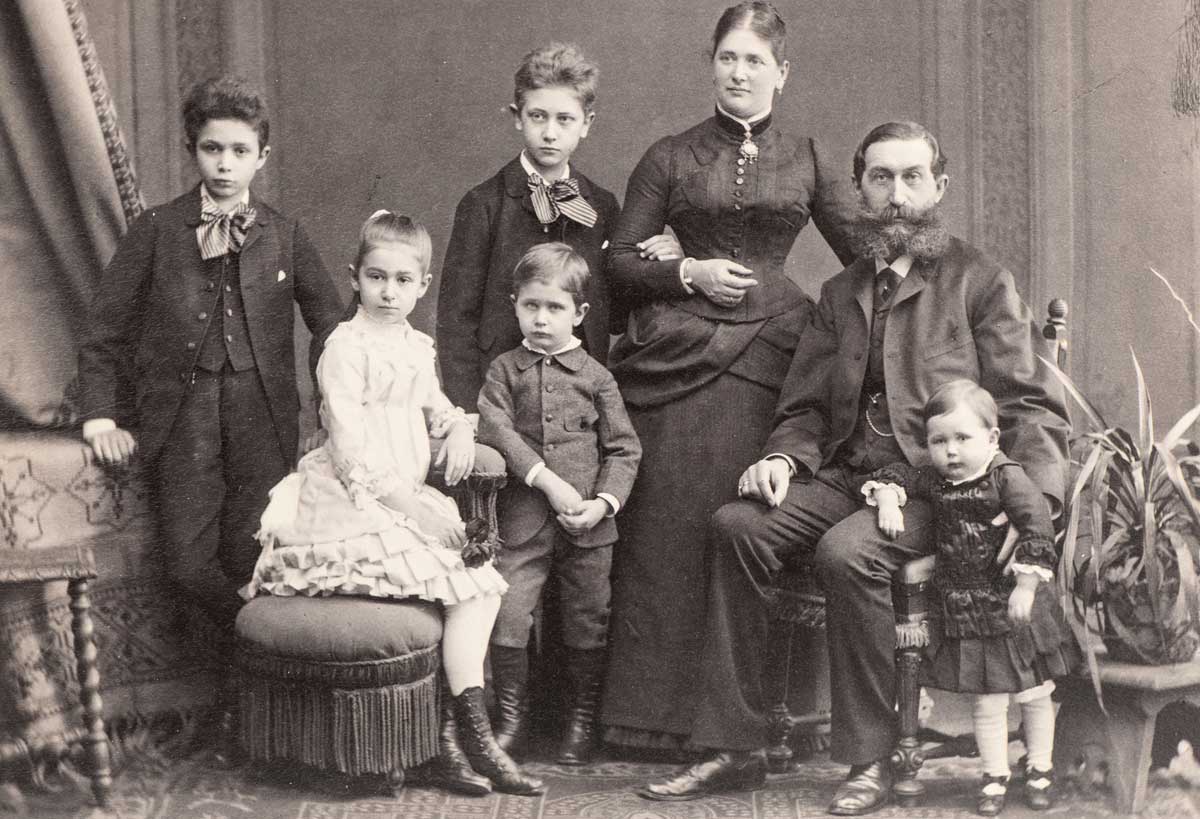The Culture of Hope & Glory
Passing on Christian Culture on the Verge of the Third Millennium
by Janine Langan
It is evident that passing on culture of any kind today is a major challenge. All over the world, people herald instead the creation of ever new societal patterns, cut off from any roots. Witness Chinese mothers spending half their weekly salary to take their precious single offspring to McDonald’s, so they feel at home in the new economy; or German academicians recreating the dictionary to erase all complexities in spelling, thus ensuring the impossibility of tracing words to their origin.
Four Cultural Handicaps
Here in North America, various forces combine to obstruct the transmission of culture from one generation to the next.
First, we lack the time. Recent Canadian statistics point out that children have lost 12 hours of parenting per week since 1960. Culture is lived, not thought. It takes time to digest and build it into one’s personal make-up. And time we don’t seem to have, neither we nor our children. A great Puffin book, Michel Ende’s Momo, recounts the almost successful war against children of smoky-grey time thieves attempting to take over the world, sucking us dry of “presence.” It sounds eerily true. How will children learn to rejoice in the gift of life and in their responsibility for co-creating the universe, if their parents never took the time to cook and garden with them? Without regular family meals and the related festivities, how will they learn to throw themselves heart and soul into liturgy? All our later ideational teaching must be grounded in such real life experiences. If not, our words will flash for an instant, then wither and die.
Second, any cultural transmission must counteract the formative impact of the new media, from TV to computers. TV killed reading and storytelling for many children. At key developmental times, it replaced complex tales with bits of strong input fitted to the young’s presumed “attention span,” thus ensuring that this attention span would not be stretched. Generations raised on “Sesame Street,” cop chases, and porn videos do not think in terms of long-range plots; they crave for the fastfood imagination instead. They do not experience themselves as part of a long, complex history, going somewhere. Alasdair McIntyre rightly points out that this makes the transmission of serious ethics almost impossible. Transmitting Christian culture means essentially inserting a new person into Christ’s transfiguration of history. But for much of the new generation, history, meaningful story, is not a concept. And it is in no way linked to their own life story, which is itself perceived either as a passive victimization, or as a chance privately to actualize one’s internal gods and demons (c.f. the popularity of Thomas Moore’s Care of the Soul).
As for the Internet, it gives one a chance to communicate without commitment or risk of any kind: a totally disincarnate form of communication. Here, one’s interlocutors have no access to any concrete, betraying trace of one’s person: neither facial expression nor voice, nor even handwriting. This is one of the attractions of virtual reality. I have a friend who is very fat, and loves to chat on the Internet as “gazelle.”
Third, and I think most problematic of all, the new generation is deeply mistrusting. They have been showered since their earliest years with warnings not to allow adults to come too close, either because they are potential sexual molesters, or simply because they are parents threatening to distort their budding identity (this was the common topic of conversation among teachers at our intermediate, yuppie public school). Early exposure to the harshness of sex has also left them wounded by first experiences of “love,” whether their own or their friends. And they are constantly aggressed by the overstimulation of various media. One of my students said it graphically, in response to my complaints that her class was almost unreachable, even by shock techniques: “Shock is counterproductive. We are the condom generation. We know how to shield ourselves from outside invasion.” Transmission of culture is based on trust, and generous self-opening to new experiences. That trust is simply not there. Political correctness has been successful in forming us all: we believe in the right to privacy and in the ultimate value of tolerance. Both express the same rejection of insemination with the insights of others; cultural transmission is precisely such insemination.
Fourth, virtual reality is the passion of the new generation. They love simulation, and the stimulation that it entails. A movie without special effects is of no interest. Christian culture is about presence and truth. It is an effort to reject escapism into myths and fantasy, and to transform the real world into a proper offering to our Creator, a true temple of the Spirit. The general rejection of the institutional church, in other words, of the Church incarnate and tangible, is a logical effect of this preference for special effects over tough daily reality and its overwhelming demands.
Can approaches be found to break through so many fundamental impediments to the transmission of Christian culture in the present society? One of John Paul II’s latest apostolic letters, Tertio Millennio Adveniente, will be my source of answers to this question. This pope is the most culture conscious and mission conscious of all popes, and his universal call to join in celebrating the 2000th anniversary of Christ’s birth is clearly his latest ploy to lure the world at large into Christ’s way of life—into participating in Christian culture. His attempt to focus our attention on the millennium is an attempt to counteract the cultural handicaps in ourselves; it intends to prepare us to deal with them in others. Here then are a few general pointers from Tertio Millennio Adveniente (TMA).
subscription options
Order
Print/Online Subscription

Get six issues (one year) of Touchstone PLUS full online access including pdf downloads for only $39.95. That's only $3.34 per month!
Order
Online Only
Subscription

Get a one-year full-access subscription to the Touchstone online archives for only $19.95. That's only $1.66 per month!
bulk subscriptions
Order Touchstone subscriptions in bulk and save $10 per sub! Each subscription includes 6 issues of Touchstone plus full online access to touchstonemag.com—including archives, videos, and pdf downloads of recent issues for only $29.95 each! Great for churches or study groups.
Transactions will be processed on a secure server.
more on culture from the online archives
more from the online archives
calling all readers
Please Donate
"There are magazines worth reading but few worth saving . . . Touchstone is just such a magazine."
—Alice von Hildebrand
"Here we do not concede one square millimeter of territory to falsehood, folly, contemporary sentimentality, or fashion. We speak the truth, and let God be our judge. . . . Touchstone is the one committedly Christian conservative journal."
—Anthony Esolen, Touchstone senior editor












